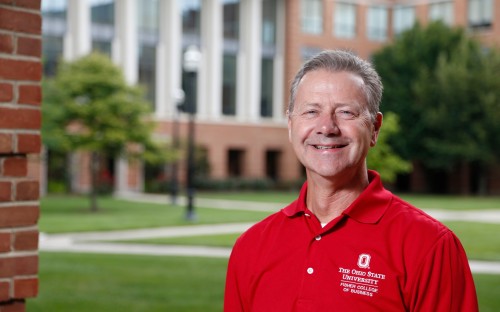Donald Trump’s presidency has brought uncertainty for many international students applying to MBA programs and looking for jobs in the US. But Jeff Rice, executive director of Fisher’s Office of Career Management, thinks there are many reasons to be positive.
This year, every Fisher recruiter said the school’s MBA grads showed they have the skills and experience necessary to add value to their companies.
For Jeff, international students in particular, have strengths they can draw on when applying for jobs in the US. And he’s confident in the school’s record—past international students have landed jobs at leading firms like Amazon, Apple, Deloitte, JP Morgan Chase, and IBM.
BusinessBecause caught up with Jeff to find out more.
How can international MBA students stand out in the US jobs market?
Like any job candidate, international students must be clear in the three most important dimensions of a proactive job search—function, industry, and geography.
Once this targeted approach helps build a shorter list of companies, both in the US and home countries, matching the ‘differentiators’ to specific aspects of the companies’ business through networking and interview preparation can bring success. This is exactly how we approach our coaching to international students at Fisher.
From a global perspective, international students can differentiate themselves through cultural knowledge, multi-lingual capabilities, and being well-versed in immigration policy in order to help educate potential employers on curricular and optional practical training opportunities.
How does Fisher support its international MBA job-seekers?
Since the Fisher MBA is intentionally select in size, we have the opportunity to provide career and job search coaching to our students on an individual basis. Our primary goal is to help our international students see themselves as global candidates and not exclusively national candidates.
We have dedicated resources to our international students in several ways, including individualized coaching; working closely with Ohio State-based offices in Shanghai and Mumbai to generate home country opportunities (our international students are predominantly from China and India); deepening corporate relationships with Fisher alumni at companies and in industries more prone to sponsoring international students for H-1B visas; immersing international students in diverse project teams.
Has Donald Trump’s administration made it harder for international students to forge careers in the US?
It’s too early to determine if new approaches to immigration will have any negative effect from a work visa or path to permanent residency standpoint. It is clear, however, that the direction of the current administration is not to expand immigration options, and international students are keenly aware of this.
In the spirit of finding a positive in a potential negative situation, our international students are increasingly focused on approaching both internship and post-graduate opportunities with companies that have a major presence in their home countries.
With the Fisher MBA, our students are prepared to work anywhere in the world and be successful.
RECAPTHA :
9b
fc
3a
75







